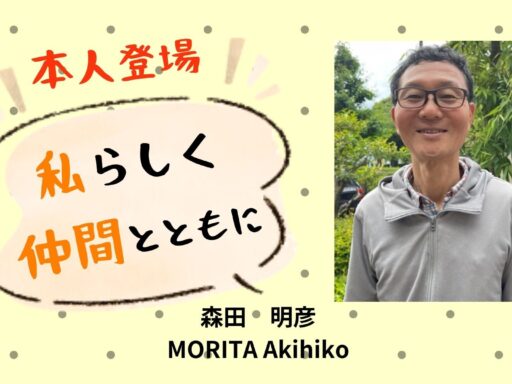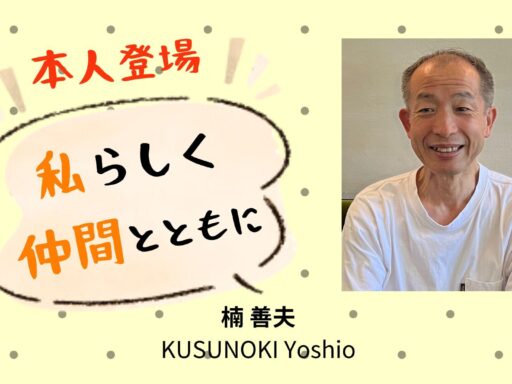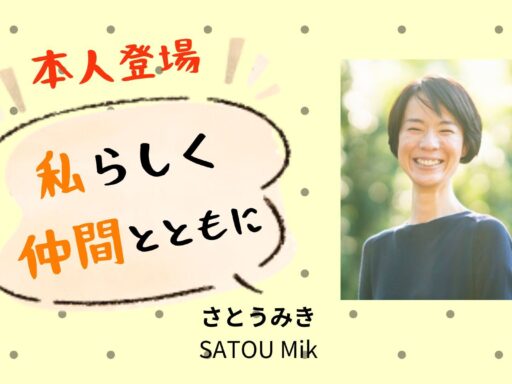Therapeutic dialogue with Persons with Alzheimer type dementia
Dialogue with the family of people with dementia
don’t know if he knows or not
It is known that the subjectcontents of disorientation changes with the progression of Alzheimer-type dementia. Initially, patients present time disorientation in time alone; eventually, disorientation in place, followed by disorientation in person, appears. Thus, disorientation in person is a sign of progression to advanced dementia.
On the other hand, even when the symptoms of dementia are not advanced, there are times when the patient mistakenly calls someone by the wrong name. In such cases, the family is shocked and says that “the patient no longer recognizes me, even though we spent a lot of time in our lives together and experienced happy and sad things together.” They think that, if the patient no longer knows the family, he/she does not know anything else either.
However, just making a mistake with a name does not necessarily mean the patient no longer recognizes that person. A woman with Alzheimer-type dementia called her first son, who came to visit me for the investigation, by her second son’s name. The first son was extremely shocked. However, after talking, she explain an episode with her first son’s wife, spoke about an episode with the first son’s children, and talked about how she could not eat at all because of being worried about her first son’s sequelae after a traffic accident. Then, she finally called her first son by his correct name.
The family may ask the patient questions and unintentionally want to confirm that the patient accurately recognizes them. However, this should be avoided as much as possible, and the therapist should advise the family to talk about many things that could give patients a hint so that the patient can recall correctly. It is important to make the family understand that the symptoms of dementia fluctuate, similar to other symptoms. There are times when the patient can say the name correctly and there are times when they make a mistake; however, it is important to make the family understand that striking memories do not disappear from the patient’s mind It is important for the family to understand that even if the patient has difficulty remembering, the memory will not be lost from the patient’s heart.. It is necessary to guide the family so that they do not waver between joy and sorrow for every misstatement by the patient. Here, I show a part of dialogue I had with an 80-year-old woman taking care of her 85-year-old husband with Alzheimer-type dementia.
Wife: I was holding his hand and asked, do you know who I am? He replied, “Hmm, who is this?” He didn’t know at all. I held his hand for a long time and asked, “Do you know? Do you know?” I was so sad when he said, “I don’t know.”
Therapist: When a patient says, “I don’t know,” I wonder what kind of “I don’t know” it means.
Wife: He said, “I don’t know who you are.” He told me clearly. I was depressed. I thought, he does not remember me at all.
Therapist: He knew who you were until recently?
Wife: I had thought he still knew it was me.
Therapist: Has it been this way for the past 1 to 2 years?
Wife: Someone have said harsh things, like “He hasn’t recognized who you are for a lot longer.”
Therapist: This can change depending on the time and day.
Wife: Yes, it changes for sure.
Therapist: When a patient says, “I don’t know,” it may not necessarily mean they don’t know who you are.
Wife: Do you think so?
Therapist: It could be that they don’t know to use words properly, so they answer, “I don’t know” in that context. He knows he lived with you for several decades, but he might not what to say.
Wife: He doesn’t know what to say?
Therapist: Just as an example.
Wife: Can he no longer find words? Does he not have the ability anymore?
Therapist: I think it takes time to find the right words. It’s necessary to make an effort, like, it’s a lot more trouble, to continue to make so much effort, just to have a little conversation.
Wife: That is a lot of work.
Therapist: Yes, it is. If the patient were doing well and if it were in the morning before the brain gets tired, then maybe he could think of the right word right away…
Wife: When I asked, “Is it good?” when he was eating the food I prepared, he said “Yes, it’s the taste of mom’s (my wife’s) cooking.”
Therapist: Really! I still think it’s best not to ask, “Who am I?”
Wife: When I say, “I’m your wife,” he looks for a while and says “Yeah,” but I’m not sure if he’s saying that, understanding 100%…
Therapist: I don’t think it’s that he understands 100% or 0%.
Wife: Do I exist, somewhere in his head?
Therapist: Yes, without a doubt. He immediately recognized the “taste of mom’s cooking” when eating the food you prepared. If you try to confirm, it doesn’t lead to very good results. If you try to confirm and if he happens to be able to answer, you might end up asking more questions, thinking how much does he understand? And ultimately, you’d be disappointed after asking questions until he doesn’t reply.
Wife: I don’t think it’s good for him, to pursue too much. I interpret it my own way and try to be satisfied, thinking that I’m loved.
Therapist: I agree. But what an important experience, to hear the word “mom.” Is there anything else that the patient would say, “taste of mom’s cooking” about?
Wife: I’m not sure.
Therapist: Maybe you can make something like that, the next time.
Wife: OK.
Therapist: I’m sure there is something like that among the food that he likes. And at that time, maybe ask “Was it good?” rather than “What is the name of thr dish?”
Wife: OK.
Therapist: Yes, that’s right. The family sometimes gets stuck in the depths. Though I do understand that feeling.
Wife: Gradually, we try to start asking something.
Therapist: When people are asked a question, first, they try to understand the question, then, they think of the answer. In the last step, they say the answer. To answer a question, one needs all three steps of understanding, thinking, and answering. But others think the patient doesn’t understand anything when he/she cannot answer the question.
It is best for the family to avoid asking questions that are aimed to confirm whether the patient understands. Rather, it is better to provide clues that could clarify a memory that may have become ambiguous. Patients who live with a family that has learned this skill are psychologically stable. But for the family to act this way, first, the family needs to have their anxiety under control and have some room to breathe. The family’s anxiety of “How much does he/she understand” is not relieved no matter how much they confirm with the patient. This is because the family’s anxiety is not induced by the patient’s unreliable behaviors, but is something that exists in the family’s mind. It is necessary The most important thing for the therapist is to sympathize with the family’s feelings that they want to confirm how much the patient understands.
Impaired remote memory
It is known that patients with dementia tend to forget recent events, but remember things from the past. Even if the disease progresses substantially, the patients often maintain their remote memory in Alzheimer-type dementia. As events from a long time ago are recalled repeatedly up to the present time, and this type of memory can be maintained. Thus, to enjoy a conversation with the patient, the family should pick a topic from an old memory; this often sparks a lively conversation. Reminiscence therapy, which utilizes the characteristics of such memory, is effective for the rehabilitation of patients with dementia.
On the other hand, memories from a distant past also create a strong mental shock to the family when the patient forgets. An 84-year-old patient with Alzheimer-type dementia who is a former president of a company frequently took his wife on long-distance drives when they were younger. This was the most valuable memory for the wife, but there was a time when the patient could not recall this. A dialogue I had with the patient’s wife regarding this is shown below.
Wife: Yesterday, I was so disappointed talking to my husband. I pulled out some photo albums. I told him, “When we were younger, you took me lots of places, driving. I’m so thankful. I have lots of memories.” But when I showed him the picture, he said, “Did we go there?” So I told him, “Yes, we went together, I went with you. Remember? You proudly explained how dams are made when we saw a dam being made.” Then he said, “Did I say that?” That’s when I knew he had forgotten about all of those times we went on a drive and was very disappointed.
Therapist: You showed him pictures from the trip. And you said, “We went here,” but he replied, “Did we go there?” Does he say things in that manner when he’s forgotten things?
Wife: Him? He said that with a blank face.
Therapist: You had said that your husband is quite shy. Does he pretend not to know anything when he’s thanked by others for what he did? Does he say things to cover up his embarrassment?
Wife: He does speak that way.
Therapist: It might be so. I don’t know if that’s true, but there’s a possibility.
Wife: He spoke that way before he became ill.
Therapist: When one becomes forgetful, others think the person does not understand many things anymore, but that is not necessarily true. Perhaps he can remember going on a drive many times to different places, but he might not remember the place in the picture. Even people without dementia might not remember every single place they have gone. Maybe that’s why he muttered; did we go there?
Wife: Do you think so?
Therapist: He’ll probably act shy if you told him you were happy he took you on these trips many times.
Wife: He’ll probably pretend he doesn’t remember.
Therapist: I’ve known him for a few years now through the visits, and it does seem like he would say that.
Wife: He probably would.
Therapist: Dementia has progressed to the point that words do not come out, so there may be people who say they can’t remember. Maybe they don’t know, maybe they know. But even with Alzheimer-type dementia, your husband should have act embarrassed in the same way in a same type of situation. People’s true nature does not change. So, why won’t we make it that he knows when we don’t know if he knows or not? There’s no need to go out of our way to think in a bad direction.
There are many elements of the patient’s attitude, speech, or conduct that do not change with the progression of Alzheimer’s disease. The patient might sometimes act embarrassed or pretend not to know or notice, similar to when the patient was well prior to the diagnosis. The family tends to think, due to the anxiety related to the progression of dementia, that the patient may have forgotten. Therefore, therapists should aim to have a conversation to support the family’s feelings to attempt to believe that the patient’s true nature still exists, beyond the question of whether the patient understands. This leads to supporting comfortable times between the dementia patient and the family.
Source: M. Shigeta. Psychotherapy for Dementia: A Dialogue with People with Alzheimer’s Disease. HOUSE Publishing. 2020
1 2















